I am obsessed with literature, popculture and music*I hope one day, I´ll stop living for everyone else and finally choose myself*Macks - The Color of Music / sapphic music novel OUT NOW
Don't wanna be here? Send us removal request.
Text

**[my emphasized excerpts below in no particular order]**
These days, Lorde feels locked in to everyone and everything around her. She metaphorically threw her phone in the ocean while making Solar Power, but she’s plugged back in now; tomorrow, she will post her very first TikTok. “I’ve never been more addicted to my phone,” she says. “I think to be a good artist, you have to have a sense of what’s in the water. And I’m on my phone way more, but also I’ve never read more. I’ve never looked at more art. Maybe it balances out somehow.”
And yet, it turns out that getting to this place required a series of dramatic personal upheavals — many of which informed the raw, sublime Virgin. On it, she set out to deconstruct and even destroy the old version of herself. Lead single “What Was That” describes a young woman clearing the smoke from a recently ended relationship, mourning what she lost but free to start anew. But there’s so much more than breakup songs. On Virgin, rebirth is stitched into every line: The album is feral, wild, and physical, full of Lorde’s most from-the-gut singing ever.
As we talk in her apartment and around her city, Lorde often repeats how “terrified” she is to open up about the album — and to let the world hear it. There are songs she forebodingly describes as “rugged,” vulnerable, and messy, fitting for an artist who’s unlearning the conditioning that taught her to be digestible and “good.”
“There’s going to be a lot of people who don’t think I’m a good girl anymore, a good woman. It’s over,” she promises, eyes bright and full of fire. “It will be over for a lot of people, and then for some people, I will have arrived. I’ll be where they always hoped I’d be.”
Returning to New York at the end of 2023 meant taking stock of what was and wasn’t working for her. She was still stuck in a cycle of self-loathing, covering up the mirrors in her home instead of facing herself. She began to realize that her obsession with thinness was controlling her life, that she needed to find a path out of her disordered eating habits. It was the first time she could see a way out. It’s still a journey, Lorde says, to return to her old self, to someone who had a healthier relationship with food and with her body. Her return began once she started to see her compulsion to count and track and restrict as a kind of self-imposed mission to keep herself small in various ways.
“Once I stopped doing that, I had all this energy for making stuff,” Lorde tells me. “I could see that if I cut that cord, maybe I would get something back that I needed to do my work. And it was totally true. Got it all back, and way more.”
She continued her psychedelic treatments through 2024. They helped put her squarely in her body, made her appreciate her physical self and what she’s capable of. “[I’ve] been in the same body [my] whole life,” she says, recalling a realization she had during those trips. “I understood it. I was like, ‘These arms climbed the jungle gym. And they held an award on a TV show.’ I understood the whole spectrum of it and began to enjoy the complexity and ruggedness.”
From there, she experienced what she calls “the ooze”: the act of letting herself take up more space in everything she does, whether physically or creatively. Doing so opened the floodgates of her own identity. “My gender got way more expansive when I gave my body more room,” she explains. This is something her kids have been picking up on, noticing the more masculine touches to her wardrobe in glimpses they’ve seen of her this past year.
Lorde had been reading her own Wikipedia page recently while in a meeting. There’s a quote she had given as a teenager that stuck out to her: “I have nothing against anyone getting naked.… I just don’t think it really would complement my music in any way or help me tell a story any better.”
“That’s the evolution right there,” she says. An hour earlier, at the shoot with Brown, she had draped herself over a couch in her underwear.
As a teenager, Lorde felt protective of her body and her sexuality. Her clothes acted as a kind of armor: long sleeves, high necks, opaque colors. It was a double-edged sword, though: Lorde debuted around the same time that a generation of teen superstars were starting to grow up. Artists like Miley Cyrus and Selena Gomez were shedding the purity rings and forced modesty of their Disney careers in order to embrace their bodies and sexual agency. Lorde, by contrast, became a symbol of some type of moral purity, and her modesty was, in essence, used to slut-shame her peers.
“I remember vividly in that first year of being famous, so many people saying — I’m paraphrasing — ‘It’s so good you don’t take your clothes off like these other sluts,’” she says. “I was up on a pedestal because I wasn’t employing the same tools. And I remember being like, ‘No, no, I will take my clothes off one day. Be ready.’ I’ve always known that having those qualities ascribed to me so young [meant that] me being more open with my body, with my sexuality, [would] carry real weight and agitate and alienate.”
There were expectations placed on Lorde about how a girl becoming a young woman should act. It was another way she made herself small, trying to please the world and be good. But as she oozed, she redefined herself, and she saw that her gender identity could get bigger, too. On Virgin‘s opening track, she lays the tale of her rebirth bare: “Some days I’m a woman/Some days I’m a man.”
I ask her how she identifies now, what it means and what’s changed. “[Chappell Roan] asked me this,” Lorde recalls. The pair have become close friends over the past year. “She was like, ‘So, are you nonbinary now?’ And I was like, ‘I’m a woman except for the days when I’m a man.’ I know that’s not a very satisfying answer, but there’s a part of me that is really resistant to boxing it up.”
Though Lorde still calls herself a cis woman and her pronouns remain unchanged. She describes herself as “in the middle gender-wise,” a person more comfortable with the fluidity of her expression. In some ways, she feels like her teenage self again, back when her friends were mostly boys and there was a looseness in how she dressed and acted.
When Lorde wrote “Man of the Year,” she was sitting on the floor of her living room, trying to visualize a version of herself “that was fully representative of how [her] gender felt in that moment.” What she saw once again was an image of herself in men’s jeans, this time wearing nothing else but her gold chain and duct tape on her chest. The tape had this feeling of rawness to her, of it “not being a permanent solution.”
“I went to the cupboard, and I got the tape out, and I did it to myself,” she tells me. “I have this picture staring at myself. I was blond [at the time]. It scared me what I saw. I didn’t understand it. But I felt something bursting out of me. It was crazy. It was something jagged. There was this violence to it.”
We talk about the Trump administration’s war against the trans community. While opening up about her own identity terrifies her, she knows she has less on the line than people whose gender identity does not match what they were assigned at birth.
“I don’t think that [my identity] is radical, to be honest,” she says. “I see these incredibly brave young people, and it’s complicated. Making the expression privately is one thing, but I want to make very clear that I’m not trying to take any space from anyone who has more on the line than me. Because I’m, comparatively, in a very safe place as a wealthy, cis, white woman.”
Lorde made her past two albums with Jack Antonoff, whom she calls a “positive, supportive collaborator,” but it was time to shake things up. “I’m very vibes-based,” she says. “I just have to trust when my intuition says to keep moving.”
27 notes
·
View notes
Text
OMG just bought 2 tickets for Bad Bunny!!!! Cant wait

0 notes
Text
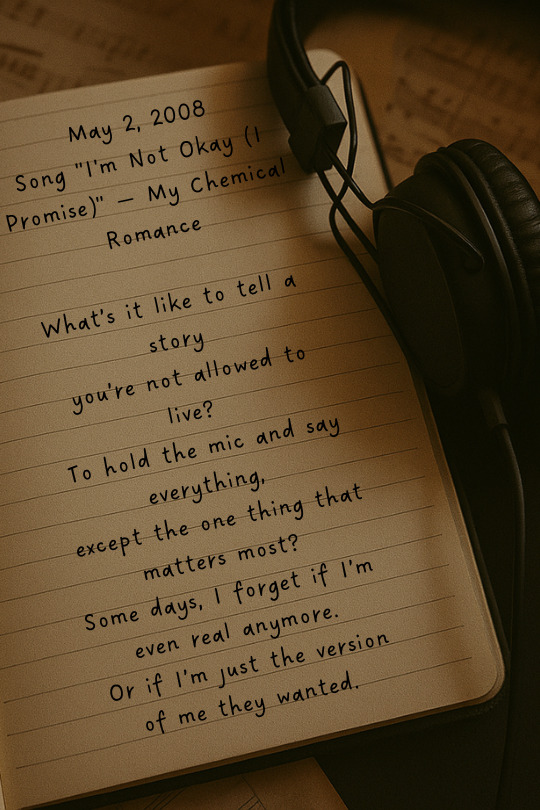
The secret diary of Mackenzie Walker - from Macks - The Color of Music, a sapphic YA music novel.
#music#sapphic literature#music novel#macks#writers on tumblr#queer books#pop culture#musicnovel#diary entry#my chemical romance
0 notes
Text
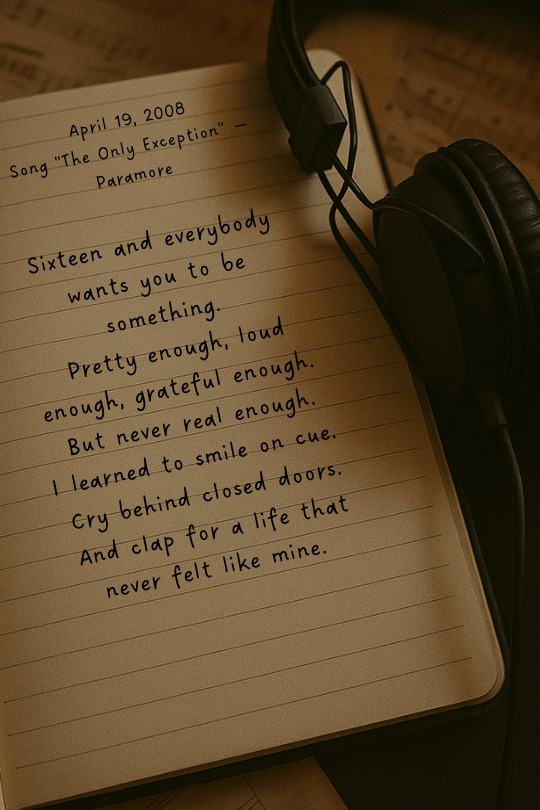
The secret diary of Mackenzie Walker - from Macks - The Color of Music, a sapphic YA music novel.
#pop culture#sapphic literature#music novel#writers on tumblr#queer books#music#musicnovel#macks#diary entry#writing#paramore
1 note
·
View note
Text

The secret diary of Mackenzie Walker - from Macks - The Color of Music, a sapphic YA music novel.
#pop culture#sapphic literature#writers on tumblr#music novel#queer books#macks#musicnovel#music#diary entry#girl in red#closeted popstar
3 notes
·
View notes
Text
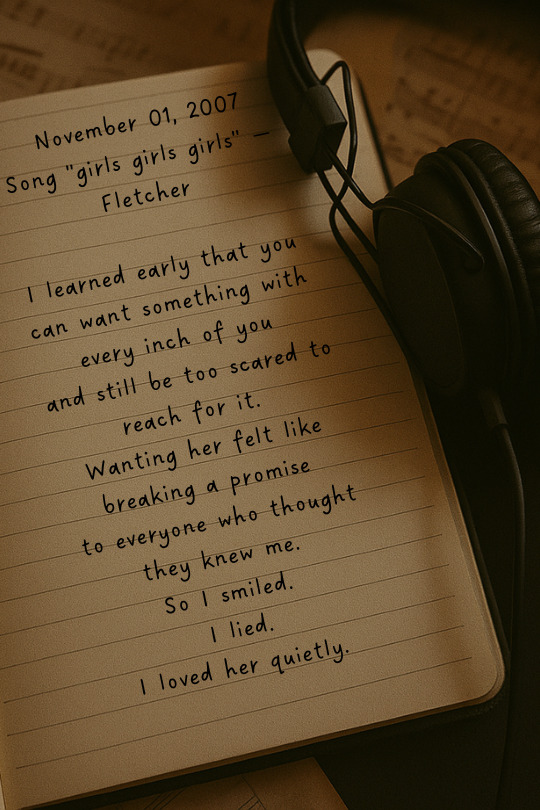
The secret diary of Mackenzie Walker - from Macks - The Color of Music, a sapphic YA music novel.
#pop culture#queer books#music novel#writers on tumblr#music#sapphic literature#macks#musicnovel#digital diary#diary entry#closeting#fletcher
0 notes
Text
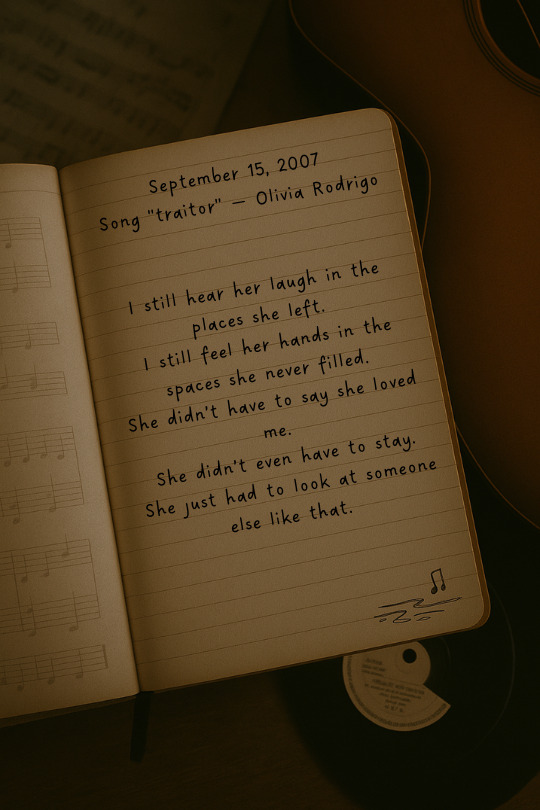
The secret diary of Mackenzie Walker - from Macks - The Color of Music, a sapphic YA music novel.
#pop culture#queer books#writers on tumblr#sapphic literature#music#music novel#macks#musicnovel#digital diary#diary entry#sad girl vibes#closeting#olivia rodrigo
0 notes
Text
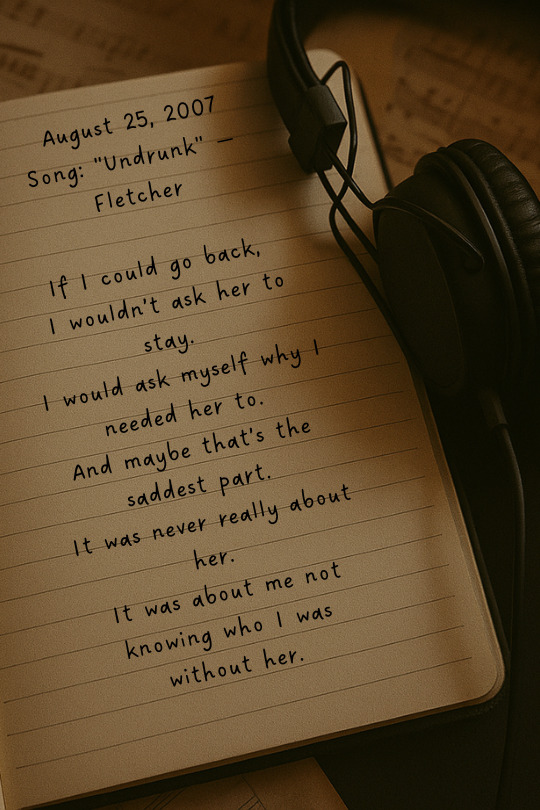
The secret diary of Mackenzie Walker - from Macks - The Color of Music, a sapphic YA music novel.
#pop culture#music#queer books#writers on tumblr#sapphic literature#music novel#musicnovel#digital diary#diary entry#sad girl#songwriting#fletcher
1 note
·
View note
Text
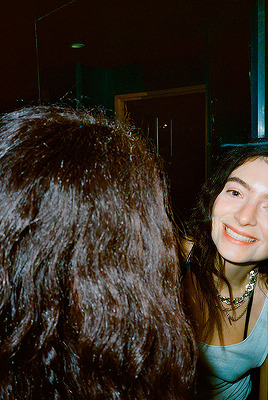
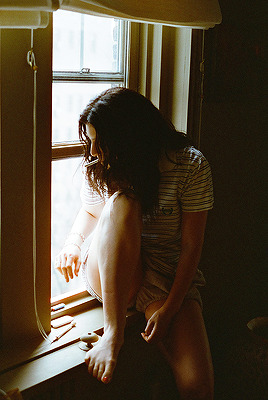
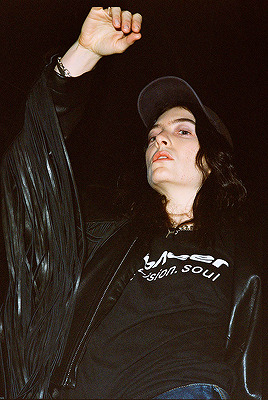
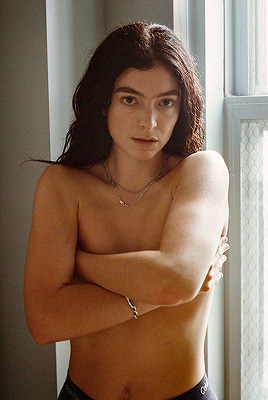

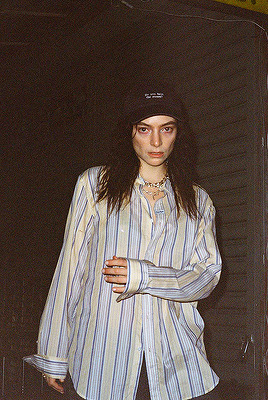
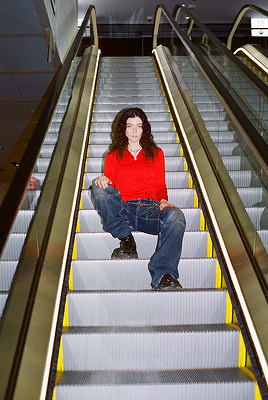
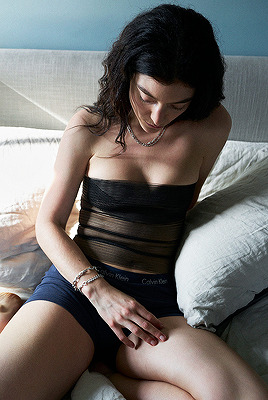
Lorde photographed by Martine Syms for Document Journal (2025)
932 notes
·
View notes
Text
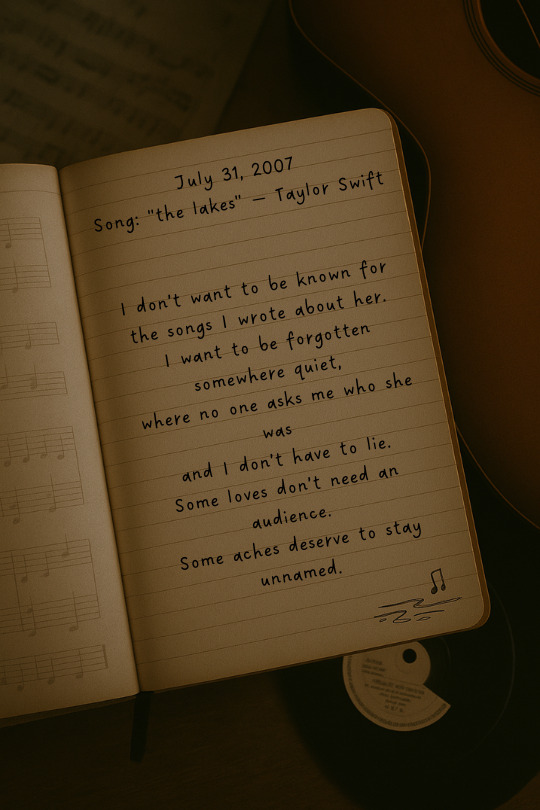
The secret diary of Mackenzie Walker - from Macks - The Color of Music, a sapphic YA music novel.
#pop culture#queer books#writers on tumblr#music novel#sapphic literature#music#musicnovel#taylor swift#the lakes#dear diary#diary entry
0 notes
Text
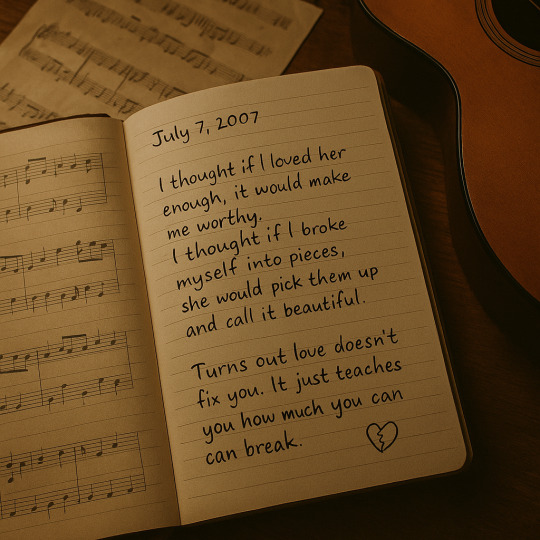
The secret diary of Mackenzie Walker - from Macks - The Color of Music, a sapphic YA music novel.
1 note
·
View note
Text
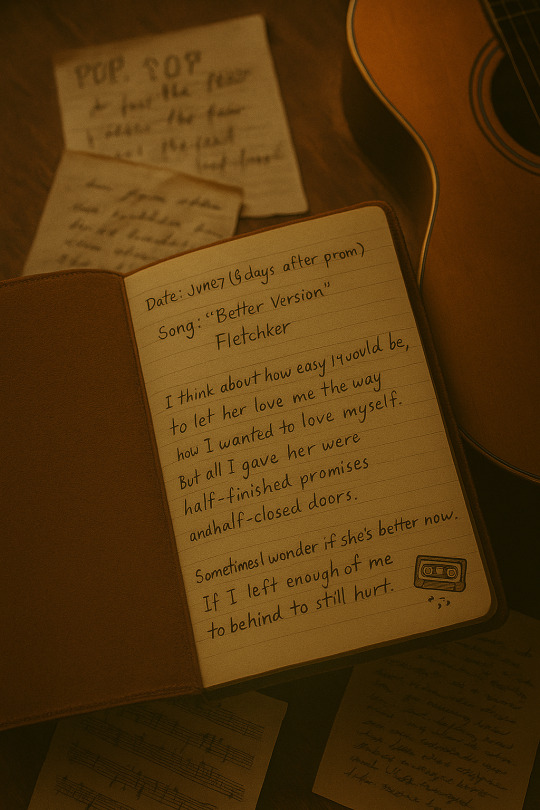
The secret diary of Mackenzie Walker - from Macks - The Color of Music, a sapphic YA music novel.
#pop culture#queer books#sapphic literature#music novel#writers on tumblr#music#better version#fletcher#coming of age novel
0 notes
Text
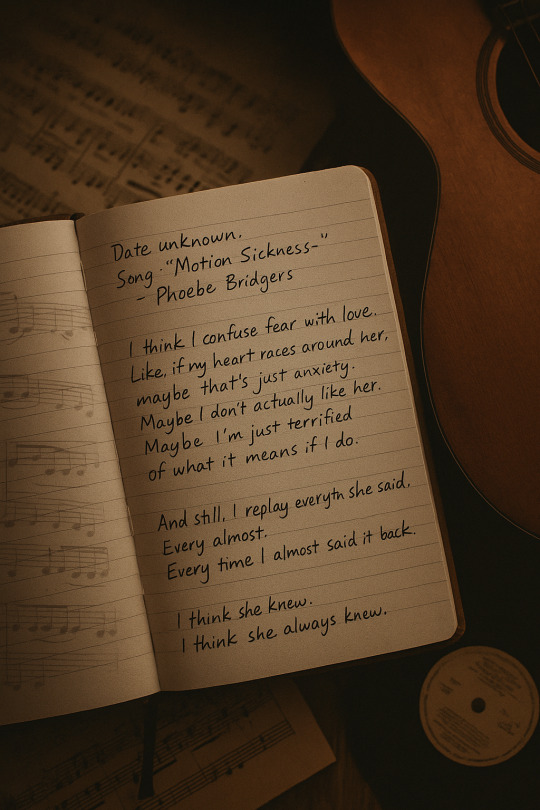
The secret diary of Mackenzie Walker - from Macks - The Color of Music, a sapphic YA music novel.
#queer books#pop culture#sapphic literature#music novel#macks#writers on tumblr#musicnovel#motion sickness#phoebe br
0 notes
Text
My analysis of What was that by Lorde and what this new ear might bring
When I do lyric analysis, I try to look at the whole picture. Since I’m a writer, I have a strong sense for details, and I love connecting things—threads, symbols, recurring lines.
Disclaimer: This is just my personal analysis, based on what I’ve picked up, so be nice! I’ve got a wild imagination, and I’m not afraid to use it ✨
Let’s start with the aesthetics: Lorde chose a red shirt and a splashed face—instantly transporting me back to the Pure Heroine era in 2013. I found this picture in one of her newsletters—credit to @lordeemailarchive here on Tumblr.


Lorde said in a recent post about her MV:
“My new music video What Was That. As little between us as possible. Aliveness over prowess. Naïveté over disenchantment. I LOVE YOU WE START HERE.”
Lorde Drops New Single "What Was That." Did We See You In The Music Video? - GO Magazine
This new era is about rebirth and chance.
Lorde Is Reborn in the Streets of New York with “What Was That” - V Magazine
So I think this time, we ll see the real Ella. She already teased this with her keychain and "ELLA" on it (dont get me started on that :P)


Now let’s get into the lyrics…
As always, I’m looking at both the words and the world around them—context, era, visuals, mood. So here’s what stood out to me:
A place in the city A chair and a bed I cover up all the mirrors I can't see myself yet
This is a direct reference to Melodrama – Perfect places / Liability
What the fuck are perfect places anyway?
So I guess I'll go home Into the arms of the girl that I love The only love I haven't screwed up She's so hard to please, but she's a forest fire I do my best to meet her demands, play at romance, we slow dance In the living room, but all that a stranger would see Is one girl swaying alone, stroking her cheek
I wear smoke like a wedding veil Make a meal I won't eat
“Girl, so confusing” verse with Charli XCX: “I tried to starve myself thinner, but then I gained all the weight back.”
Step out into the street, alone in a sea It comes over me
This part catapults me right back into her Pure Heroine era. I want to point out how this section—taken from her newsletter for the 10-year Pure Heroine anniversary—adds weight to those lyrics. It underlines the same themes.

[Pre-Chorus] Oh, I'm missin' you Yeah, I'm missin' you And all the things we used to do
This part feels like a direct reflection of her post-Solar Power era. It reads like a quiet confession—an acknowledgment of distance. Not just from a person, but from a version of herself, or maybe even her fans. After Solar Power, which marked a huge shift in sound and public image, a lot of listeners felt disconnected. And here? It’s like she feels that too. The nostalgia, the longing, the absence—it’s mutual.
Lorde reflects on "painful, confounding" reaction to Solar Power - triple j

[Chorus] MDMA in the back garden, blow our pupils up
Melodrama ref
Lorde Reveals She Was on MDMA While Making 'Melodrama' - Business Insider
We kissed for hours straight, well, baby, what was that? I remember sayin' then, "This is the best cigarette of my life" Well, I want you just like that Indio haze, we're in a sandstorm and it knocks me out I didn't know then that you'd never be enough, oh Since l was seventeen, I gave you everything
This is such a clear Coachella reference—Indio haze = Indio, California, where the festival takes place. Lorde first performed there when she was just 17, and it launched her into the stratosphere. These lines feel like a reckoning with that moment: the glamor, the chaos, the overwhelming rush of fame.
The “sandstorm” knocking her out reads like a metaphor for how disorienting it all was. And that “you”... maybe it's fame, maybe it’s the industry, maybe it's the version of herself she gave away.
She gave it everything—since she was seventeen. And now? It’s like she’s waking up, dazed, asking:
Now, we wake from a dream, well, baby, what was that?
Which hits even harder knowing how reflective Solar Power and the Pure Heroine anniversary newsletter both are.
Here is the setlist.... I will come back to it later. Track NO 4 :P

[Verse 2] Do you know you're still with me When I'm out with my friends? I stare at the painted faces That talk current affairs You had to know this was happenin' You weren't feelin' my heat When I'm in the blue light, down at Baby's All Right I face reality
This sounds like a breakup—& yet... there's something more here. A duality. She's physically present in the now (Baby’s All Right, a literal NYC venue), but emotionally tied to a past version of love—or maybe even to the version of herself from those Pure Heroine / Melodrama / years.
All About Lorde's Ex-Boyfriend Justin Warren
[Pre-Chorus] I tried (I tried) to let (To let) Whatever has to pass through me Pass through, but this is stayin' a while, I know It might not let me go
[Post-Chorus] What was that? 'Cause I want you just like that (When I'm in the blue light, I can make it alright) What was that? (When I'm in the blue light, I can make it alright) Baby, what was that?
This entire section feels like a direct echo of “Green Light”—but flipped. In Green Light, she couldn’t let go. She was waiting for that metaphorical green light to move on, to finally be free.
"But I can't let go." "I wish I could get my things and just let go." "I'm waiting for it, that green light..."
But now, years later, the tone has shifted. She’s not waiting anymore. She’s processing. Letting it pass through her. And even if the feeling “might not let her go” immediately, she’s not resisting it. She’s sitting with it, instead of trying to outrun it. That’s growth. That’s healing in slow motion.
The question “What was that?” hits like a final realization. Whether it’s about love, fame, youth, or the version of herself she used to be—it’s gone. And this time, she’s not clinging to it.
Which brings me to the final part:
And now the song makes sense in so many ways.
The music video:
It ends with Lorde crawling out of a sewer and stepping onto a stage—after running and biking like she’s escaping something, or maybe returning to herself.
It all comes full circle with this quote:
“As little between us as possible. Aliveness over prowess. Naïveté over disenchantment. I LOVE YOU. WE START HERE.”
So yeah, I’m excited for L4. Back to Pure Heroine roots, a possible Gracie Abrams collab (If you wanna know why i belive this, comment and I will do a post on that), and a Lorde summer
Last but not least: I love alliterations. What was that. White teeth teens.
I know you love it when the hairpins start to drop
so yeah... hope u guys enjoyed :D
#lorde#what was that#wwt#melodrama#pure heroine#lorde summer#tortured poet#pop culture#solarpower#lorde4#l4theory#gracieabrams#lorde x gracie collab#lyric analysis#cant wait for ella
11 notes
·
View notes
Text
should I do a lyric analysis on WHAT WAS THAT by Lorde? Let me know ;) I really kinda want to, but its going to be some deep dive shit I guess :P
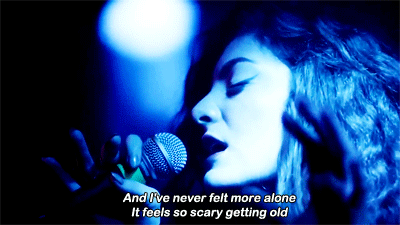
2 notes
·
View notes

